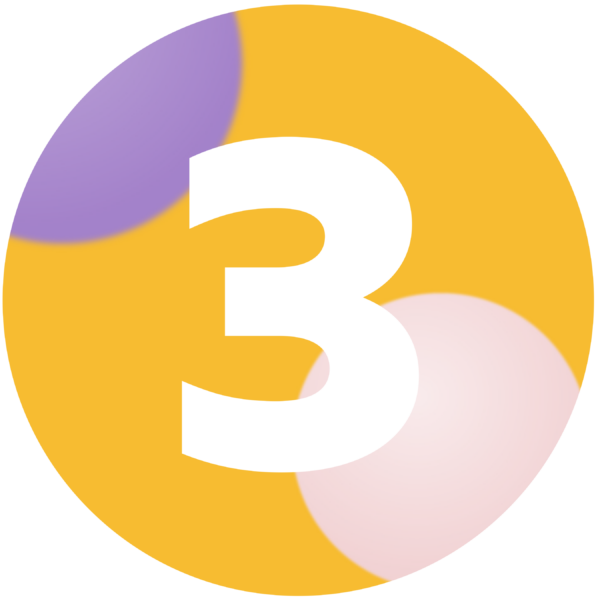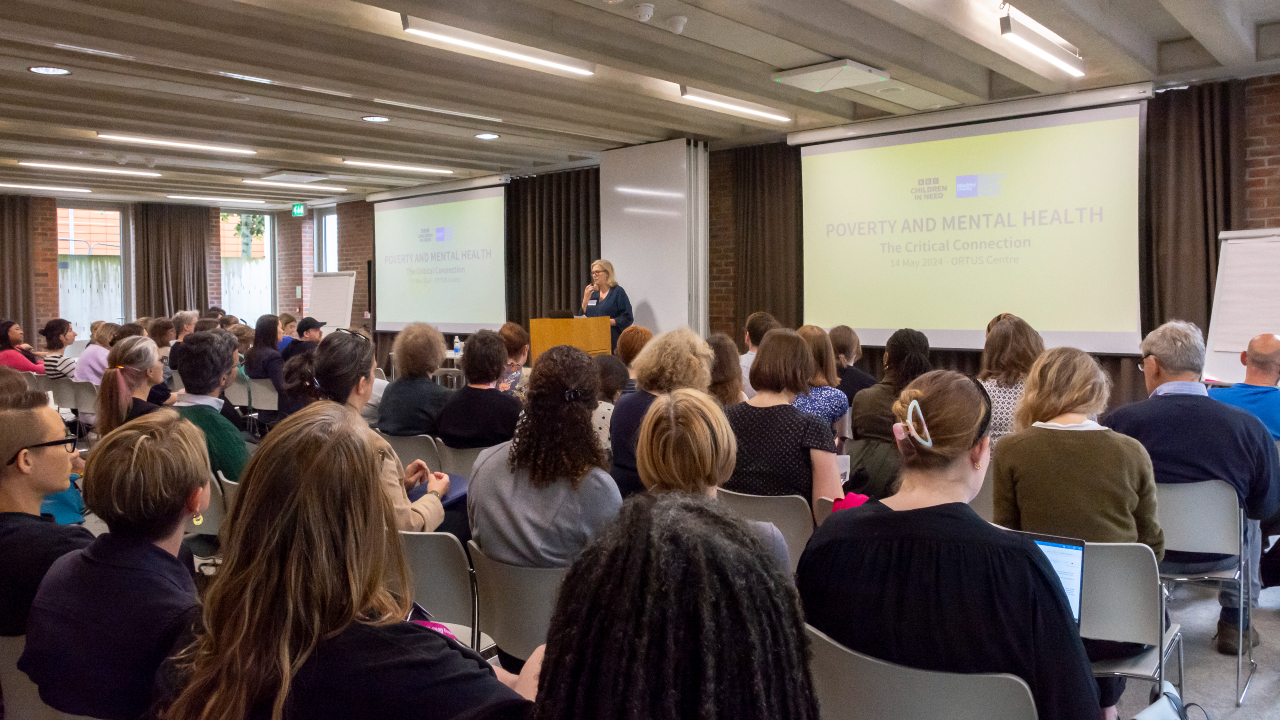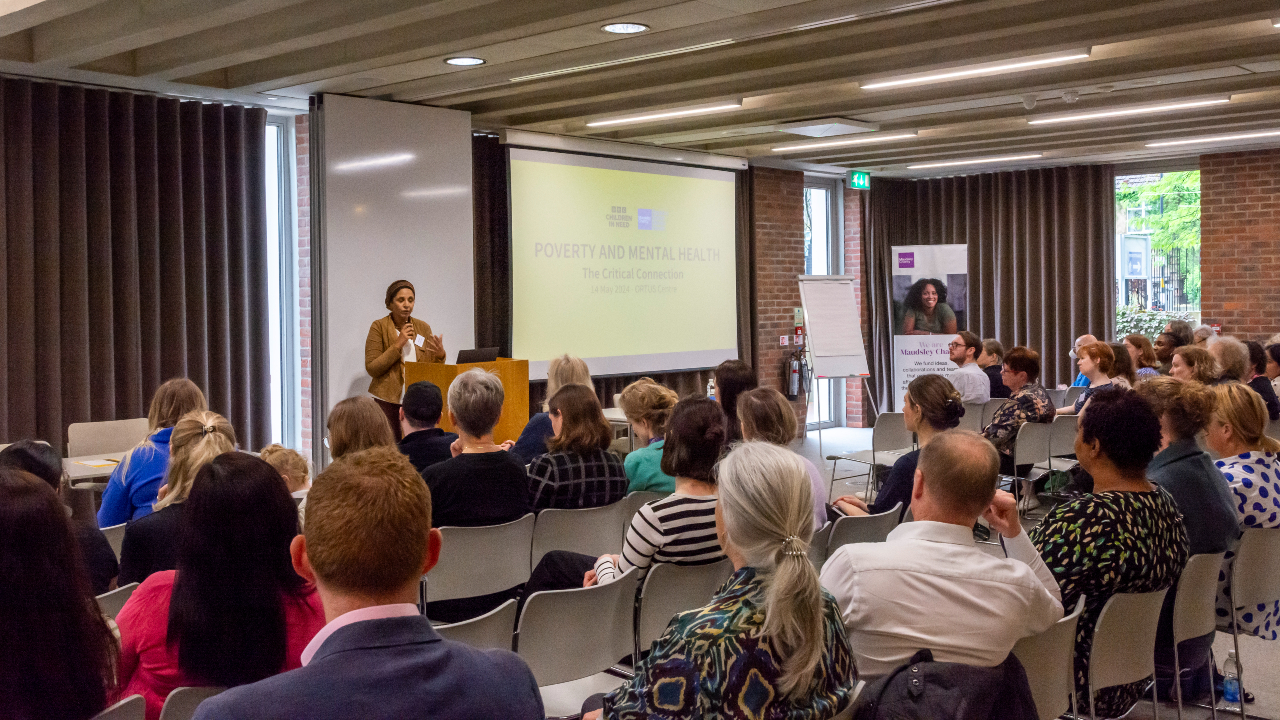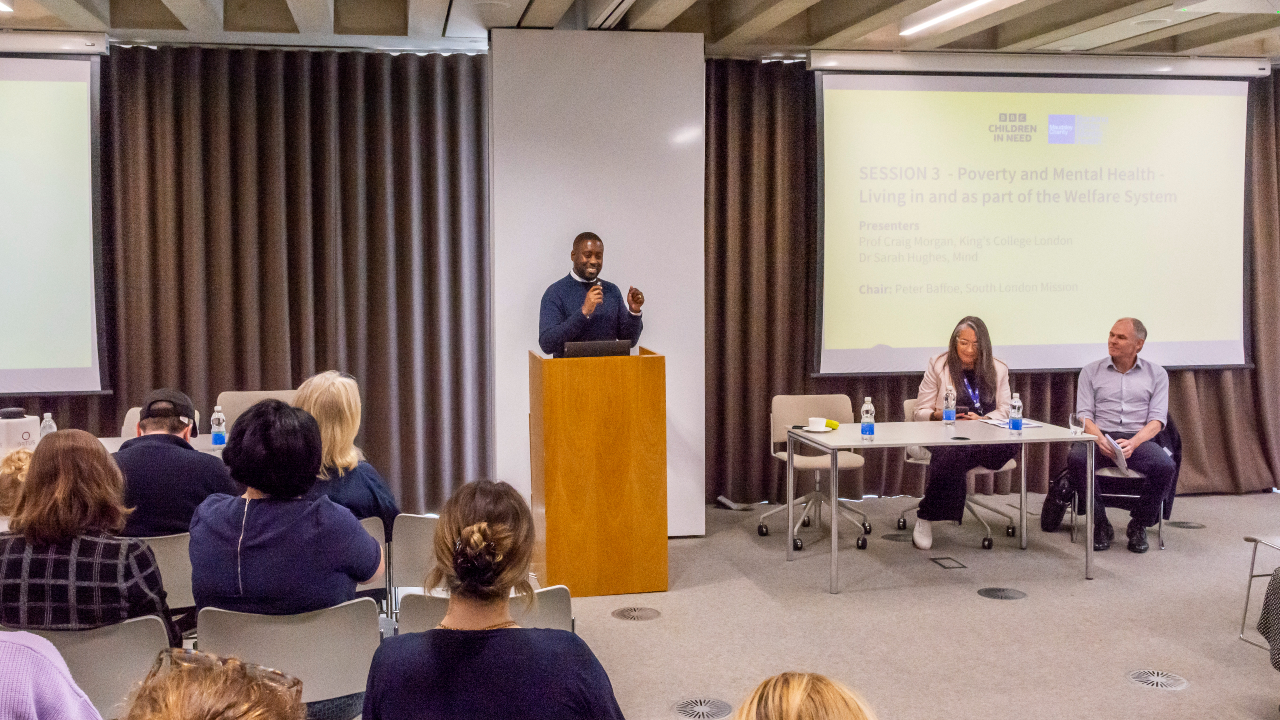Three takeaways from the “Poverty and Mental Health Conference | The Critical Connection”
Many of us working in the voluntary sector know that our mental health is a national crisis and has been for what feels like a long time. Research published more than 15 years ago showed that 1 in 4 people in England experienced some kind of mental health difficulties, and the figure has significantly increased since 1993. Other mental health issues such as suicide and self-harm have also been on the rise. Once considered an illness affecting only adults, mental ill health also affects children and young people. Last year, NHS England estimated that about 1 in 5 of 8- to 16-year-olds in England are affected by a mental disorder, and eating disorder among 17- to 19-year-olds sharply increased from 0.8% in 2017 to12.5% in 2023. Children and young people face a record high waiting list for mental health referrals. Clearly, this is a social issue that widely affects a significant section of our society.
Recent years have seen a number of inspiring charity- and NHS-led campaigns to have an open dialogue about mental health, and it seems that we have a much better understanding of mental health than before. But while talking about mental health issues like this may go some way in helping to normalise and destigmatise the issue, ‘it affects everyone equally’ simply isn’t true – in fact, mental ill health affects some sections of our society disproportionately. To mark Mental Health Awareness Week, BBC Children in Need and the Maudsley Charity hosted an event ‘Poverty and Mental Health: The Critical Connection’ to understand exactly how closely mental health is linked to a number of social issues.

Mental health isn’t an issue independent from wider, profound social issues.
The first two speakers explored the relationship between mental health and systemic inequalities. The first presentation by Dr Jen Daffin at Platfform highlighted the lasting legacy of the covid pandemic on mental health (bad news – it’ll affect us for decades), followed by Kadra Abdinasir from the Centre for Mental Health who debunked, through evidence, the common misconception that children who report mental health difficulties are not ‘moody’ or ‘going through a phase’, or a ‘result of bad parenting’. In fact, our narrative on mental health is simply wrong – the context in which individuals are living must be considered. Kadra also reflected that those more highly impacted by the intersection of mental health and poverty are children from racialised backgrounds, care-experienced children, disabled children and children of parents with mental health problems or disabilities. Presentations by Dr Kate Polling, Kamna Muralidharan and Prof Craig Morgan also emphasized the concentration of reported mental health problems in highly deprived areas and racial and ethnic minority groups. Taking us through some of the data available, it was evidenced that mental health is a reflection of a deeper systemic inequity, and we simply can’t talk about it without addressing inequalities in income, housing, and education.

The intersectionality of mental health shows it is not up to the healthcare system to fix alone.
So we cannot talk about mental health without talking about poverty, race, gender, social class, even the environment and climate change, and….what else? Learning about the roots of mental health in social inequity was enlightening, yet so many of us feel powerless to tackle them. The issue feels far too large to handle, especially when the majority of social systems – the NHS, schools, social care – also need fixing. It was clear many in the audience shared the same sentiment, with one person posing the question “then what is the solution?” The audience was certainly not short of people who worked in community mental health care for decades, for whom this is not news. Yes, we need more funding, we need policy changes to bypass the barriers within government institutions, and we’ve long called for a holistic, integrated approach. Perhaps it is all of them, but in baby steps. Both the panelists and audience talked about community-based support linking health and social care as well as social services. Now, this isn’t a new idea; however, the speakers and audience urged for a cross-governmental strategy and response – one which is built on community and collaboration, not conditionality and sanctions.

There’s nothing more powerful than the voices of those with lived experience.
One thing that clearly resonated several days after the event was the powerful stories from two speakers who came to share their personal experiences. What struck me the most was how let down they felt when they did interact with mental health and social services, after seeking help for a very long time and how unheard they felt. The ‘system’ let them down. The feeling of not being heard added to their emotional trauma – this certainly stayed with me. As a research and insight professional, I remind myself that often hidden in the data and evidence are the real stories of real people. They have a voice, we just aren’t good at listening to them, or even if do we listen, we’re not good at acting on what’s been said. Those with lived experience stressed again and again that often socioeconomic issues beyond their control often serve as significant barriers to seeking and receiving help. As a parent myself, it pained me to hear that parents, doing everything they can for their child while themselves struggling with their mental health, are often seen as ‘not doing enough’, let alone being the cause of the child’s mental health issues. The final speaker, Dr Sarah Hughes, CEO at Mind, brought her own lived and professional experience to remind us of the importance of people’s stories – evidential proof in their own right of what needs to change to improve our nation’s mental health.
The conference served as a powerful reminder that mental health is not an individual battle, but a societal issue demanding collective action. BBC Children in Need is committed to improving children and young people’s mental health through a holistic approach. Our Backpack Campaign precisely addresses this, by raising awareness and opening up a conversation about children’s mental health. We are providing trusted adults with resources to support positive relationships with children and offer moments of safe connection. In addition, BBC Children in Need, in partnership with the Health Foundation and Impact on Urban Health, has also recently announced a £1m award to The Children’s Society. The Children’s Society, alongside their partners MACS NI and Children 1st, will provide targeted and early intervention mental health support to children aged 8-13, all across the four nations. This follows a competitive grant process, where we sought to find innovators developing creative, scalable and tangible mental health solutions for early intervention approaches to children’s mental health.
By acknowledging the deep-rooted social determinants and amplifying the voices of those with lived experiences, we can move beyond simply talking about mental health and work towards creating a more equitable and supportive society for all.



